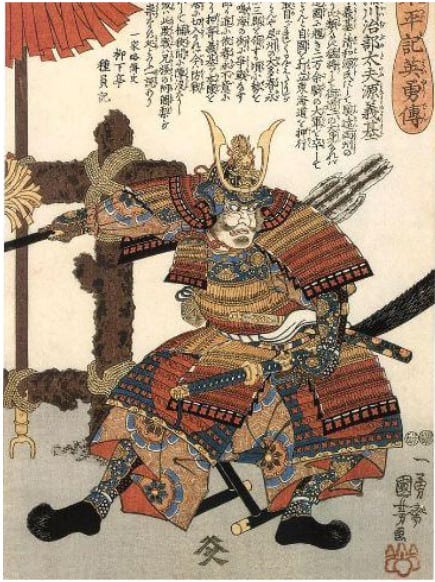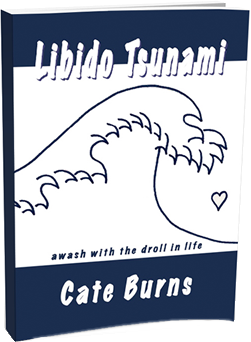The Last Laugh

My cousin’s mom, Miyoko, not quite five feet tall with two silver streaks running through her short, dark hair, stood out in my life as the only devoted religious person I knew. She arranged flowers in the traditional ikebana style to place on the altar of the Seattle Betsuin, the largest Buddhist temple in the area. I remember a fragrance of cedar, pine and cherry blossoms surrounding her.
My cousin, Shuzo, and most of his family were typical of most religiously lapsed Americans. They didn’t attend their local temple, but contacted priests as needed for big events. With their large, extended family, I attended Buddhist weddings and funerals. At picnics and holidays, I spent a lot of time with this side of my family. Being in their home with humor constantly flowing, felt like living in a sitcom.
At eighty-six years old, one day in the temple, Miyoko’s hands faltered and her flowers dropped to the floor. Trembling, she tried to remain standing, but soon crumpled next to her splayed ikebana. She held on in the hospital for a few days. On the third day, her large family gathered around. Sadly, I lived in another city and couldn’t get there.
However, I imagined my cousins automatically arranging themselves as usual at serious family gatherings in an order I suspect originally derived from Confucius. Shuzo and his brother, the two eldest males in the group, always took the lead. Each held their mother’s hand. Their two sisters, forever second in rank, gently touched Miyoko’s shoulders. The two oldest male grandchildren laid a hand on an ankle. The other four grandchildren arrayed themselves around her toes, touching them.
Shuzo and my cousins told me later that, all at once, the tiny hospital room’s door flew open and in marched Dr. Teitelbaum, an overweight oncologist with curly, bushy hair springing in all directions from his head. Surveying the solemn scene, he bowed in respect to Miyoko and her family.
“Mrs. Yamane, how are you? I’m here to examine you. Can you hear me okay?”
Miyoko feebly nodded.
When, at last, Dr. Teitelbaum wrapped his stethoscope around his neck, ending the exam, he leaned close to Miyoko. Looking into her eyes, he said, “I’m very sorry, Mrs. Yamane, but your journey is almost done.”
Family members leaned closer to hear. The doctor raised his volume, still holding her gaze. “But you’re strong. I know that about you. And you’re brave,” he said to tiny Miyoko, frail as a dry autumn leaf, about to be blown by a gust of wind.
He pulled himself upright, puffing his chest out and raising his arms as if holding two slashing swords. Stomping his feet, like a soldier marching off to war, he yelled, “See me, Mrs. Yamane. Be like me, a courageous Samurai warrior. You can handle anything. Be tough, fearless. Be a Samurai.” His arms slashed the air.
At the sight of the gesticulating Jewish doctor acting like a medieval Japanese soldier, the family cracked up with laughter, including Miyoko. Mid-giggle, with a broad grin on her face, and being held by her family, she slipped into a final coma. Her shared laughter with loved ones was probably the last thing she felt and heard.
Weeks later, Shuzo and my cousins, normally a jocular bunch, smiled in a somber way when they reported Miyoko’s last day to me. Over the next year, every one of them told me, separately, how grateful they were to Dr. Teitelbaum for helping to give Miyoko courage and joy in her final moments.
Several months later, Shuzo learned that Dr Teitelbaum’s parents had lost all their extended family in the holocaust. Shuzo and his three other siblings had grown up in a World War II Japanese-American internment camp in Idaho. Miyoko had raised her children in the prison and helplessly watched her humiliated husband destroy himself with alcohol. Confined to the concentration camp for the duration of the war, the family lost their Washington farm. Unable to work the acreage, debts built up and the property was foreclosed.
Dr. Teitelbaum and Miyoko had suffered state persecution causing family deaths. And yet, both kept humanity and humor. Now, when I attend the Hawaii Betsuin each week, sister temple to the Seattle Betsuin, I remember Miyoko. I can’t resist imagining Dr. Teitelbaum’s Samurai pantomime and it always brings a smile.

Cate Burns is the author of Libido Tsunami: Awash with the Droll in Life, in which she unearths the ludicrous in the emotional live traps surrounding us — in families, friends and disastrous romances. Get it on Amazon today.
